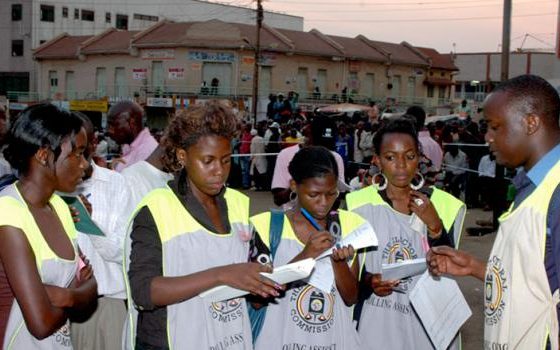By Faruk Kirunda
I have been looking at the text of the recently passed Electoral Commission Amendment Bill 2019. Much appreciation goes to Members of Parliament for passing yet another piece of legislation, moreover under difficult circumstances when we are being hunted by Coronavirus.
Looking at the Bill now awaiting the President’s assent, under clause 3, subsection 7, it says, “Where in any election petition, the court finds the commission to have committed an election irregularity or an illegal practice and awards compensation to the successful party, a returning officer who is found to be personally liable for that election irregularity or illegal practice shall pay a portion of the compensation, as may be determined by the court.”
That clause, while it must have been envisaged in good faith to strengthen the legal regime against electoral fraud and malpractice, is highhanded and susceptible to misapplication. It could be used to witchhunt the wrong parties.
During deliberations, MPs noted cases where some returning officers had been found guilty of electoral malpractice but there was no provision in the law to hold them accountable. They agreed to enact a law to specifically provide for the removal of such errant returning officers that have been mentioned in an election petition judgment to have participated in perpetrating irregularities.
What MPs intended to cure is a well-known problem that has affected the credibility of our elections despite the great effort of NRM to make democratic elections the standard way of choosing leaders. It is true there are individuals undoing the collective effort geared towards full democratization and those need to be attended to quickly.
However, I disagree with the above-quoted clause and believe that if the President goes ahead and signs it in its current state it won’t be fair at all. It would be like killing a mosquito using a hammer-the table, too, is broken. The penalty proposed is too hefty for effect. There cannot be democracy without (credible) elections that deliver a fair result reflecting the true picture on the ground. Anybody who stands in the way of that process is a danger to Uganda’s progress and must be acted upon sternly but transferring an entire burden to one category of actors is to legislate in denial.
For a start, returning officers are based in the district. They earn less than a million shillings yet they preside over the electoral network of whole districts right from the lowest electoral unit (the polling station). All along the electoral chain, anything can go wrong during an election. Chances of there being no irregularities in an entire district are very minimal. Now if every time there is a problem and court deems so some returning officer is fined, where will they get the money to pay? Where would anyone get the motivation to work as a returning officer under such conditions of uncertainty and poor pay?
The EC is accused of failing to act on returning officers who have acted improperly; that they are transferred to other areas instead of applying other stern or deterrent action. When an election is challenged, there are usually many factors at play. It is wrong to pass the blame to one person out of the large number of actors involved. Many times even the judgments reached in election petitions have been influenced by interested parties who wish to take reprisal action against returning officers with whom they are at loggerheads no matter how competent they may be on the job. In short, returning officers are victims and not necessarily perpetrators of electoral malpractice.
In many cases, there are many pressures acting on them; they are intimidated by powerful individuals and indisciplined and manipulative politicians who earn more than them. Whatever they do, one side will be against them. If additional pressure is slapped on them, they will feel demoralized and abandon their stations for other things fearing that their personal assets will be confiscated for actions they had no control over.
There are 34, 330 polling stations in the whole of Uganda. Each unit has its own unique challenges, manned by persons with diverse tendencies for one person at the apex to manage perfectly. Security at polling stations is usually manned by police but police alone is about 50, 000 strong, including senior officers, those on missions abroad, the indisposed and those taking charge of non-election related matters. Chances of something going wrong are high but the manpower to take control is limited and this cannot be blamed on returning officers.
On top of that, one or two returning officers may make mistakes but it does not mean that the entire crop should be subjected to “legal persecution” for the mistakes of a few. Moreover, they don’t act as private individuals but officers of the EC.
What should be done is to provide the EC with more funds to recruit permanent presiding officers and polling assistants and train them sufficiently. The current system of appointing them for the period of the elections during which they are given some sort of training (two weeks) is risky. These recruits tend to be strangers to the exercise, lacking a deep grasp of how proper elections should be conducted. This results in anomalies that make elections unsatisfactory despite the goodwill of the leadership.
The author is a Presidential Assistant in Charge of Media Management
Contact: kirundaf2@gmail.com
0776980486/0702980486


